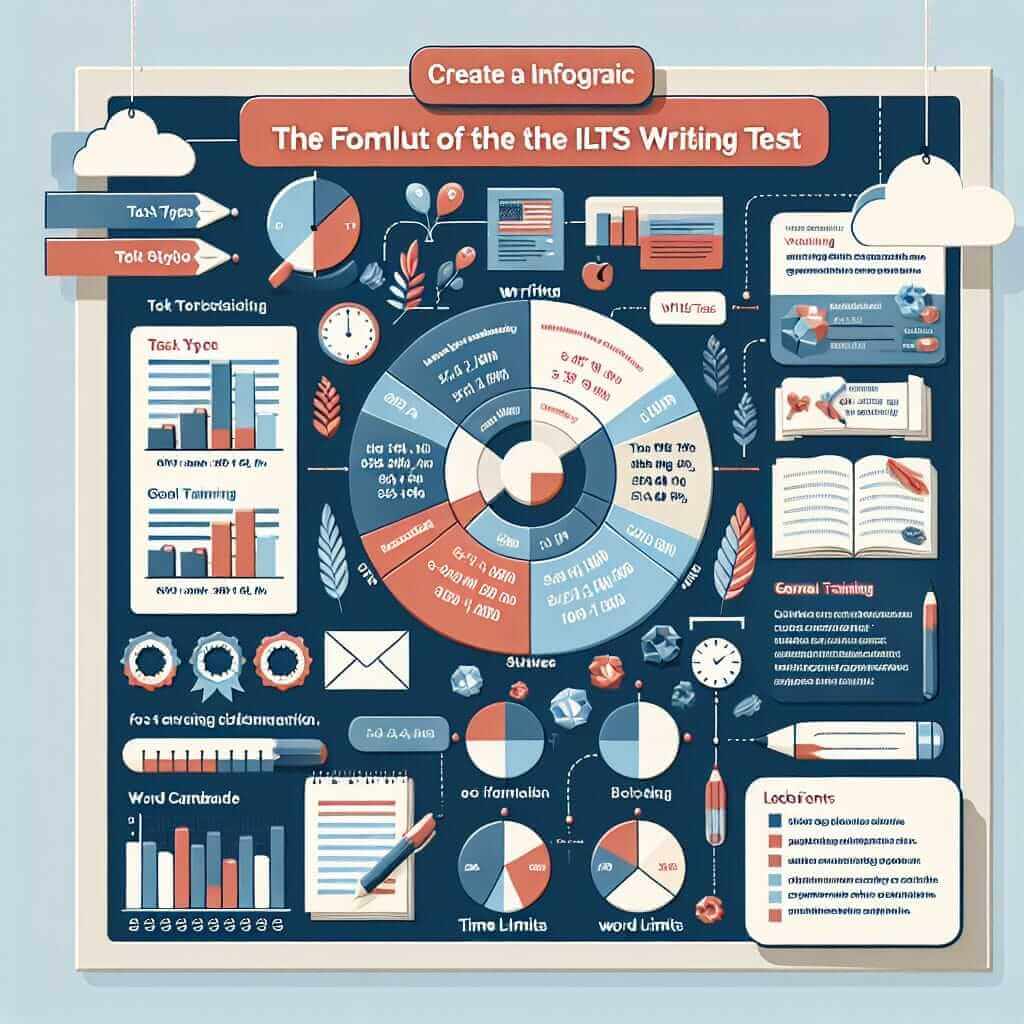The IELTS (International English Language Testing System) exam is a crucial step for anyone aspiring to study, work, or migrate to an English-speaking country. The writing section, in particular, often presents a significant hurdle for test-takers. With over two decades of experience teaching IELTS, I’ve witnessed firsthand the challenges students face and the strategies that lead to success.
This comprehensive guide will delve into the intricacies of the IELTS Writing test, providing you with the knowledge and tools to craft compelling responses and achieve your desired band score.
Understanding the IELTS Writing Test
Before delving into writing strategies, it’s essential to understand the structure and requirements of the IELTS Writing test.
Academic vs. General Training
The IELTS Writing test has two modules: Academic and General Training.
- Academic: Intended for students applying to undergraduate or postgraduate programs.
- General Training: Designed for individuals migrating to an English-speaking country or seeking work experience.
Both modules consist of two tasks, but the themes and styles of writing differ.
Task 1
Academic: You’ll be presented with a visual representation of data (graph, chart, diagram) and asked to summarise the information in your own words (150 words minimum).
General Training: You’ll write a letter (150 words minimum) in response to a given situation.
Task 2
Both Modules: You’ll write an essay (250 words minimum) presenting your argument or opinion on a given topic.
Essential Writing Skills for IELTS
To excel in the IELTS Writing test, you need to demonstrate a range of skills:
1. Task Achievement/Response
This criterion assesses how well you address the task requirements. Ensure you:
- Fully understand the question: Carefully analyze the prompt and identify the key information you need to include.
- Answer all parts: Address all aspects of the question, providing relevant details and examples.
- Present a clear position: In Task 2, clearly state your opinion and maintain a consistent stance throughout the essay.
2. Coherence and Cohesion
This criterion evaluates your ability to structure your writing logically and connect ideas effectively.
- Use paragraphs effectively: Divide your writing into clear paragraphs, each focusing on a single main idea.
- Use linking words and phrases: Employ a variety of cohesive devices (e.g., however, furthermore, in addition) to create a smooth flow of ideas.
- Use referencing clearly: Use pronouns and synonyms to avoid repetition and maintain clarity.
3. Lexical Resource (Vocabulary)
This criterion assesses your range and accuracy of vocabulary.
- Use a wide range of vocabulary: Avoid repeating the same words and phrases. Use synonyms and more sophisticated vocabulary where appropriate.
- Collocations: Demonstrate your knowledge of collocations (words that commonly go together) to enhance the naturalness of your writing.
- Avoid informal language: Maintain a formal tone throughout your writing.
4. Grammatical Range and Accuracy
This criterion evaluates your ability to use a variety of grammatical structures accurately.
- Use a mix of simple and complex sentences: Vary your sentence structures to avoid monotony and showcase your grammatical range.
- Accurate tenses: Ensure you use the correct tenses to convey the intended meaning.
- Subject-verb agreement: Pay close attention to subject-verb agreement to avoid common grammatical errors.

IELTS Writing Tips: Achieving a High Band Score
Here are some invaluable tips to help you achieve your desired band score:
- Practice regularly: The key to success in any language exam is consistent practice. Write essays and reports on a variety of topics, and get feedback from a teacher or language partner.
- Time management: In the exam, allocate your time wisely. Practice writing within the time limits to avoid rushing.
- Plan your writing: Before you start writing, take a few minutes to brainstorm ideas and create a brief outline.
- Proofread carefully: Reserve a few minutes at the end to review your work for any errors in grammar, spelling, or punctuation.
- Read widely: Expand your vocabulary and knowledge of different writing styles by reading English texts regularly.
Conclusion
The IELTS Writing test can seem daunting, but with the right preparation and guidance, you can approach it with confidence. Remember, success in IELTS Writing is not about memorizing templates but about demonstrating your ability to communicate effectively in written English. By focusing on developing the key skills outlined in this guide and incorporating the provided tips, you’ll be well on your way to achieving your desired band score and unlocking a world of opportunities.